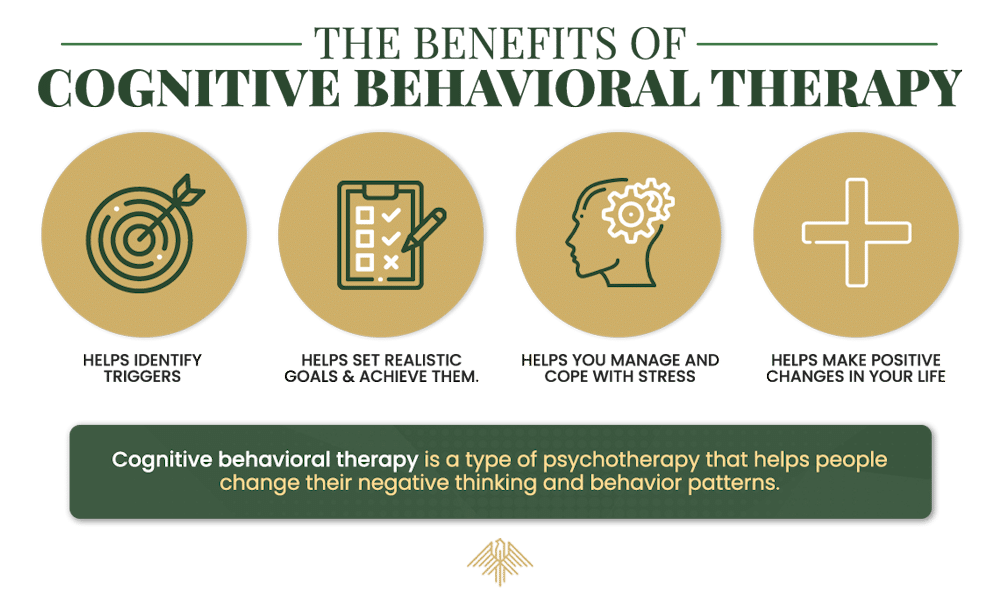What is the Cognitive Triangle?
The cognitive triangle is a model of human cognition which posits that there are three primary elements to how we process information: affect (or emotion), behavior, and cognition (or thought). This model has been used to explain a wide range of phenomena, from why we make the decisions we do, to how our emotions influence our thoughts and vice versa.
The cognitive triangle is a helpful tool for understanding the complex interplay between our thoughts, emotions, and behaviors. It can also be used to make predictions about how we might respond to different situations. The cognitive triangle posits that affect (or emotion) is one of the three primary elements of human cognition. Emotions play a major role in how we process information and make decisions. They can influence our thoughts, as well as our behavior.
The cognitive triangle also suggests that cognition (or thought) is another primary element of human cognition. Thoughts can be influenced by our emotions, as well as our behavior. Thoughts can also influence our emotions and behavior.
The cognitive triangle posits that behavior is the third primary element of human cognition. Behavior can be influenced by our thoughts and emotions. Behavior can also influence our thoughts and emotions.
Why Wait? Find The Help You Need By Reaching Out To Us Today! Our Admissions Team Is Standing By.
What Kinds of Cognitive Behavioral Therapy Exist?
Cognitive behavioral therapy is fixed on the thought processes of a person’s actions. This form of care has also given way to other methods such as dialectical behavioral therapy (DBT). DBT is a type of cognitive-behavioral therapy that focuses on the psychosocial aspects of treatment. It was originally developed to treat borderline personality disorder (BPD) but has since been shown to be effective in the treatment of other mental disorders as well.
The key features of DBT include the following:
- Dialectical thinking – accepting that there are two sides to every issue and that opposing viewpoints can both be correct.
- Behavioral skills training – learning specific skills to help cope with difficult situations and emotions.
- Validation – recognizing and accepting the client’s feelings and experiences.
- Therapeutic alliance – working collaboratively with the therapist to achieve treatment goals.
- Generalization – applying the skills learned in therapy to real-life situations.
What are the Differences Between DBT and CBT for Substance Abuse?
There are a few key differences between dialectical behavioral therapy (DBT) and cognitive behavioral therapy (CBT). For one, CBT focuses on changing negative thoughts and behaviors, while DBT emphasizes acceptance and change simultaneously. Additionally, DBT includes a focus on mindfulness, which helps individuals be more aware of the present moment and their thoughts and feelings.
Finally, DBT skills training typically includes four modules – mindfulness, interpersonal effectiveness, emotion regulation, and distress tolerance – while CBT may only focus on one or two of these areas. Ultimately, both DBT and CBT are effective methods for treating mental health conditions, but the approach taken in each may be better suited for different individuals.

Benefits of CBT for Substance Abuse
CBT has been proven to be an effective treatment for a variety of mental health disorders, such as depression, anxiety, post-traumatic stress disorder, and more.
Some of the benefits of CBT include the following:
- CBT can help you identify and change negative thought patterns.
- CBT can help you learn how to manage and cope with stress in healthy ways.
- CBT can help you develop healthy coping mechanisms for dealing with difficult situations.
- CBT can help you learn how to set realistic goals and achieve them.
- CBT can help you learn how to make positive changes in your life.
How Does Cognitive Behavioral Therapy Work?
Cognitive behavioral therapy is a type of psychotherapy that helps people change their negative thinking and behavior patterns. This type of therapy is based on the idea that our thoughts, feelings, and behaviors are all interconnected. By changing our thoughts, we can change our feelings and behaviors.
Cognitive behavioral therapy typically involves working with a therapist to identify negative thinking patterns and then learning how to replace them with more positive thoughts. This process can take some time, but it can be very effective in helping people to manage their anxiety, depression, and other mental health conditions. If you’re interested in learning more about how cognitive behavioral therapy works, please contact a mental health professional today.
CBT Techniques for Substance Abuse

CBT techniques can be very helpful for those struggling with substance use disorders. One of the main goals of cognitive behavioral therapy is to help patients identify and change any thoughts or behaviors that contribute to their addiction. This can include addressing any underlying issues that may be fueling the addiction, such as depression, anxiety, or trauma.
CBT for substance abuse can also help patients develop healthy coping and problem-solving skills to deal with triggers and cravings. This is not a magic cure-all for addiction, but it can be an effective tool in the recovery process. If you or someone you know is struggling with addiction, please seek professional help. A qualified therapist can help you work through the challenges of addiction recovery.
How to Find the Best Facility Specializing in CBT for Substance Abuse
There are a few things to consider when looking for the best facility specializing in CBT for substance abuse. First, you want to make sure that the facility has experience treating patients with your specific condition. Second, you want to make sure that the facility uses evidence-based methods of treatment. Third, you want to make sure that the facility has a good reputation. You can ask your doctor for recommendations, or you can search online for facilities that specialize in this type of counseling.
What Other Therapy Methods Exist for Substance Use Disorder
In addition to therapy, there are also medication options that can be effective in treating substance use disorders. Medications can be used to help people to reduce their craving for drugs or alcohol, and they can also be used to help people to manage the symptoms of withdrawal. Many different types of medication can be used to treat substance use disorders, and it is important to work with a doctor to find the best medication for each individual.
Substance abuse counseling is another treatment option that can be effective in helping people to recover from substance use disorders. Substance abuse counselors help people to identify the thoughts and behaviors that contribute to their substance use, and they work with people to help them to change these thoughts and behaviors. Substance abuse counseling can be done in individual or group settings, and it can be done in person or over the phone.
Some other alternative therapy options to CBT for substance abuse include the following:
- Individual therapy
- Group therapy
- Family therapy
Individual therapy is a type of psychotherapy that focuses on helping an individual address personal challenges and improve overall well-being. This form of therapy can be beneficial for people who are struggling with depression, anxiety, grief, or other issues. Individual therapy can help people learn how to cope with difficult life circumstances, work through traumas, and make positive changes in their lives.
In therapy, people can explore their thoughts and feelings in a safe and confidential environment. This can help them gain insight into their problems and find new ways to cope with challenges. Individual therapy can be an effective treatment for many different types of mental health conditions.
Group therapy is a form of counseling that involves a small group of people sharing their experiences and feelings about a particular issue to help each other. It can be an effective way to deal with personal problems, such as anxiety or depression. Group therapy can also help people learn new coping skills and ways of dealing with difficult situations.
Family therapy is a type of psychological counseling that can be used to help treat a wide variety of mental and emotional issues. It is based on the belief that the family is a system, and that each member of the family has a role to play in the functioning of that system.
The goal of family therapy is to help the family members understand and accept each other and to work together to resolve the issues that are causing problems within the family. Family therapy can be used to help families deal with a variety of issues, such as divorce, financial problems, parenting difficulties, substance abuse, and mental health issues.
Learn More About CBT for Substance Abuse at Our Treatment Center in Nampa, Idaho
Cognitive behavioral therapy is one of many different programs to help people with substance use disorders. At Eagle Creek Ranch Recovery, our utmost concern is that you get the treatment that makes the most sense for your unique needs. If you or a loved one would like to find out more, you can contact us here.

Clinical Director
Kendall Maloof is the clinical director at Eagle Creek Ranch Recovery. She is a licensed marriage and family therapist and has held multiple leadership roles before settling here at Eagle Creek. Kendall received her master’s degree in marriage and family therapy from the Chicago School of Professional Psychology in 2016. Her career in mental and behavioral health began in 2014 when she took up internships in both the nonprofit and for profit sectors. She interned at multiple reputable companies, such as The Living Success Center and 449 Recovery in California.
In 2019, Kendall became the clinical director of Sunsets Recovery for Woman, a dual diagnosis program in southern California. Kendall is a natural leader. She has an incredible ability to problem solve and stay calm in any situation. Kendall never fails to show up when she is needed, and her calm demeanor makes her team and clients feel at ease. Eagle Creek Ranch Recovery is proud to have Kendall as our clinical director.



